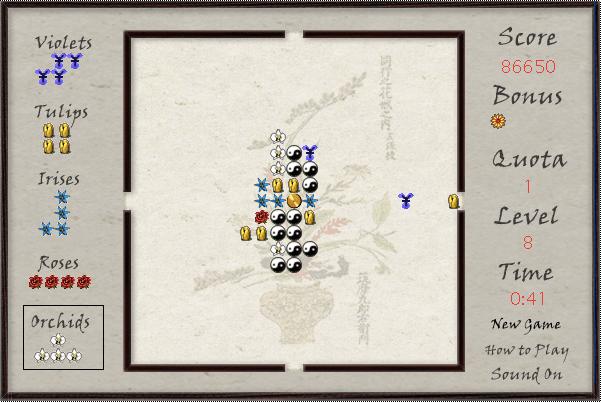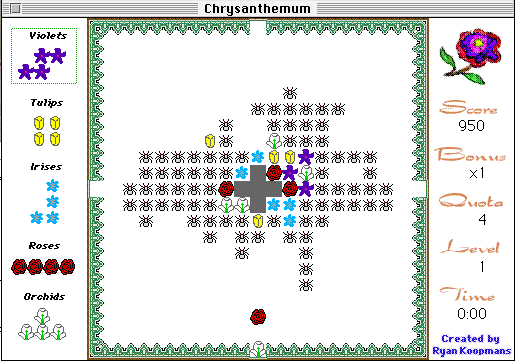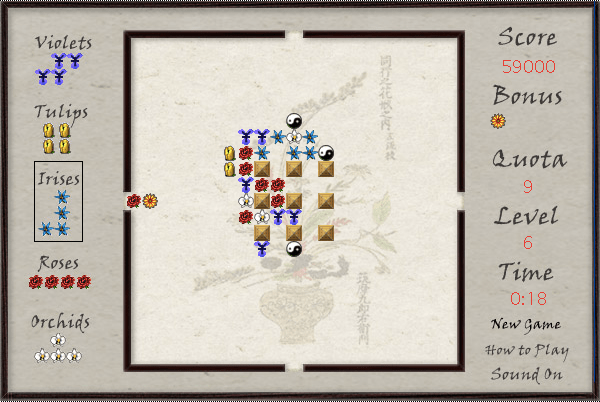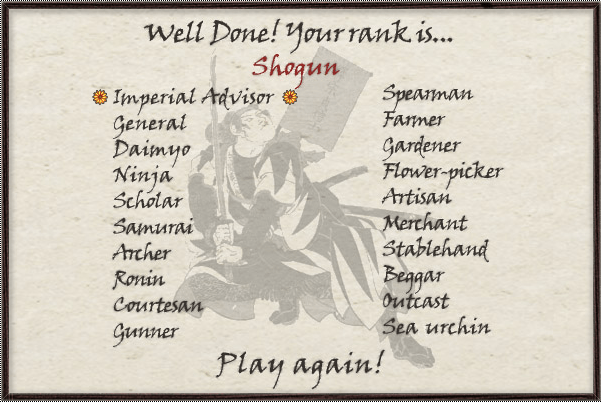Trending
Opinion: How will Project 2025 impact game developers?
The Heritage Foundation's manifesto for the possible next administration could do great harm to many, including large portions of the game development community.

Featured Blog | This community-written post highlights the best of what the game industry has to offer. Read more like it on the Game Developer Blogs or learn how to Submit Your Own Blog Post
A quick look at Chrysanthemum, the little known Mac OS7 game from 1993 based on the art of flower arranging.

Reposted from my blog at gamemakeworld.wordpress.com.
This is a quick post to highlight a little known Mac game from 1993 by Ryan Koopmans called “Chrysanthemum.” It can still be played online thanks to Online Alchemy, here.
Worldview: Meticulous, meditative spatial management
Theme: Flower-arranging
Most puzzle games that involve arrangement (Tetris, Bejeweled, Candy Crush etc.) have simple but hypnotic visuals and can put you in a pleasureable trance-like state with their straightforward and addictive gameplay. That’s why flower-arranging makes an especially nice theme for such a game.
While Bejeweled and Candy Crush have their own charm, I never thought that the destruction of candy or jewels made much sense or benefited their worlds. Bejeweled feels like a trippy sci-fi journey with a deep-voiced man through a world of jewels, while Candy Crush creates a slightly disturbing candy-sweet world, but in both cases the core theme of exploding candy/gems never quite clicked.
Flower-arranging, on the other hand, is visually pleasing and works with the “arrange similar objects” theme. The “art of flower arranging” (ikebana/kadou) also theoretically involves a meditative mental state, and these type of puzzle games also often lead to a trance-like state where you aren’t thinking consciously but rather responding to events in a relaxed but alert mindset.

Flowers appear randomly from all four sides of the screen. You can move them side to side until they collide with something and stop.

The bugs pictured here start to appear if a flower hits the opposite wall, or if you run out of time! (This screenshot is from the original version)
Once you have memorized the arrangements for each flower, you begin to see each level’s design in terms of potential flower layouts. In other words, like real flower-arranging, the game gets you into a visual design mode where you are focused on arrangement of the elements you are given to work with.
The titular chrysanthemums are the game’s “special item” that converts all flowers of one type into completed flower arrangements. Chrysanthemums become a rare and special treat that can save failed arrangements in even the most hopeless of situations.

A chrysanthemum appears from the left! Lucky!
Once you get into later levels, however, the speed becomes unbearably fast- it increases relentlessly each level rather than ebbing and flowing like Tetris. Additionally, some levels can feel unfair if you get a bad mix of flowers at the beginning (see “Strait Jacket”!).

Side Note: Ryan Koopmans apparently released another game called “Fungus” in 1994. It is hailed as a classic, but I can find virtually no information about it online, let alone a place to download or play it… Any leads?
Read more about:
Featured BlogsYou May Also Like